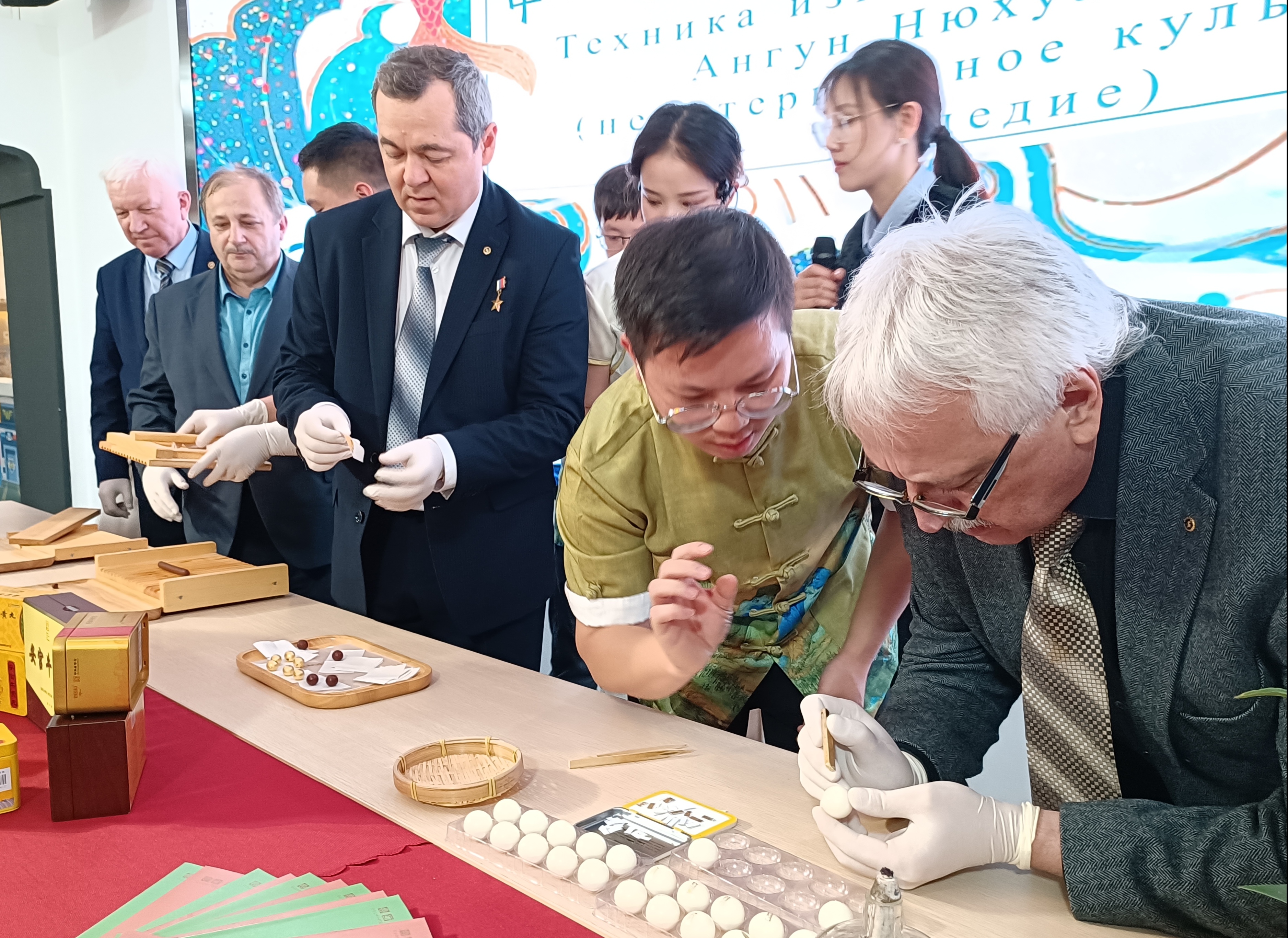By LONG Yuemei & BAI Wenlong

The Russian Experts experience the process of making the Angongniuhua. (PHOTO: LONG Yuemei/S&T Daily)
A Russian delegation headed by scientist Tupolev Valerii, vice-president of the Russian Academy of Engineering, visited Guangzhou Pharmaceutical Holdings Limited (GPHL) on November 18 to explore ways to conduct sci-tech exchanges.
"It is great to see that GPHL is integrating traditional Chinese medicine (TCM) production with advanced digital technology," Valerii said. The experts gained insight into intelligent production lines for TCM and the technique of producing Angong Niuhuang, a Chinese medicine used to treat acute cerebrovascular diseases.
Remarking on the significant changes in China over the past 15 years, Valerii highlighted the broad collaboration potential between the Russian Academy of Engineering (RAE) and GPHL in the fields of TCM and pharmaceutical equipment production and technology. He also called for more talent exchanges, sci-tech cooperation and sci-tech achievement transformation.
To speed up the innovation process of TCM, GPHL has initiated the TCM Industry Technology Innovation Strategic Alliance. In June, Li Chuyuan, chairman of GPHL , was elected as a foreign academician of the Russian Academy of Engineering. Li said he will foster exchanges and cooperation between Chinese and Russian medical science and industry.
The trio will conduct a series of experiments in fields such as life science, fluid physics, combustion science and materials science. Notably, this is the first time that fruit flies have been taken on a Chinese space mission as experimental subjects. What made scientists choose fruit flies? What experiment will they undergo?
